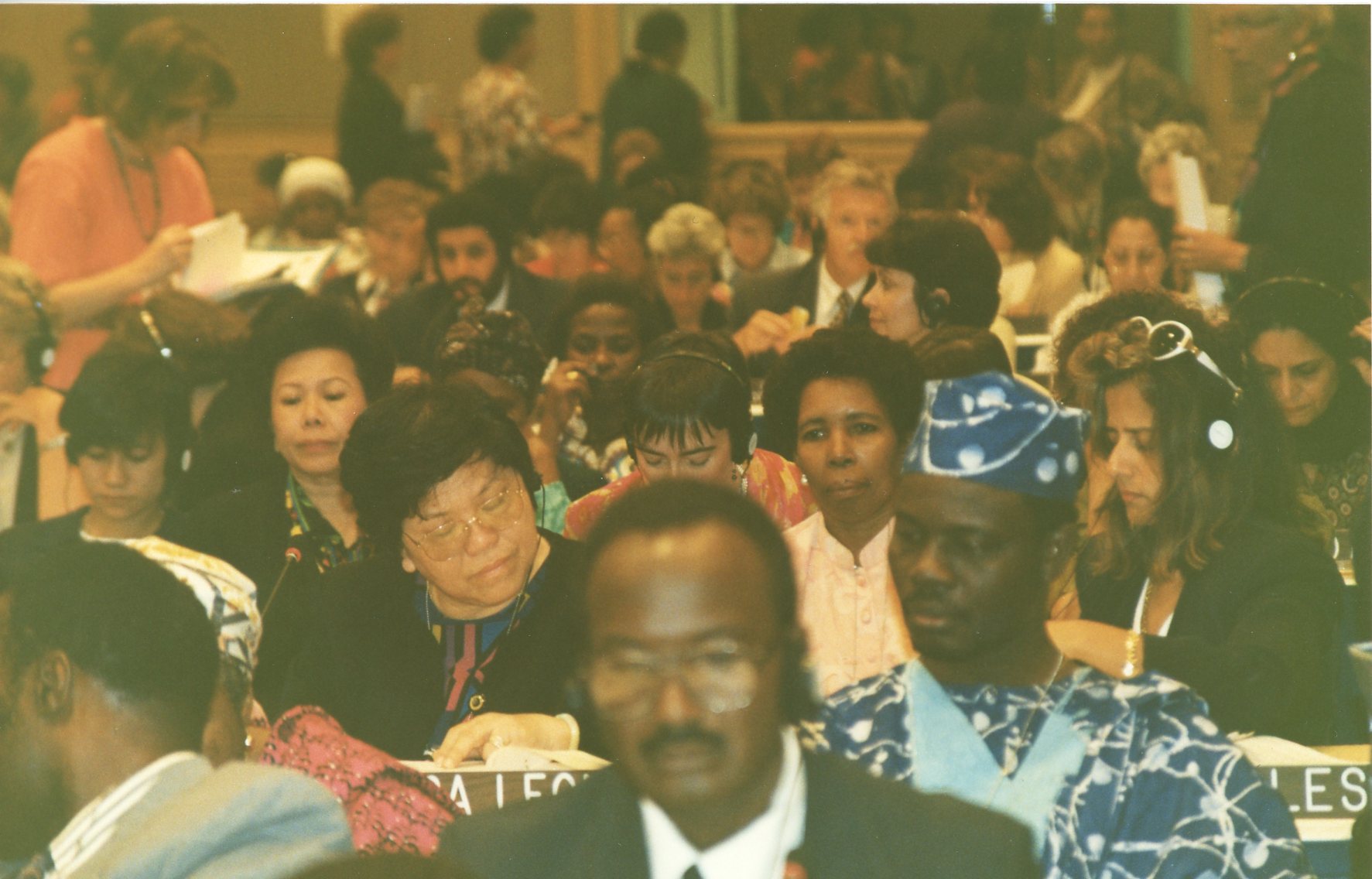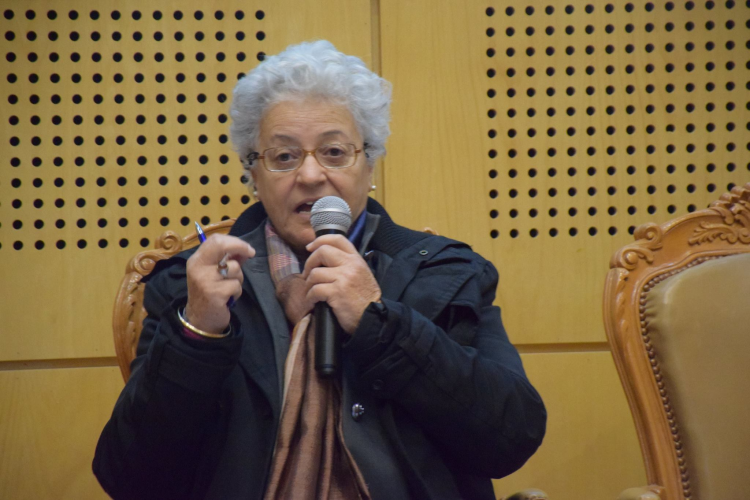HelpAge International is launching a campaign to honour the 30th anniversary of the historic 1995 Beijing Conference by spotlighting remarkable women who attended and helped shape the global gender equality agenda.
30 years after Beijing: has anything really changed for women?
Hafidha Chekir, a lifelong advocate for women’s rights, shares her memories from the conference, her thoughts on how the world has changed since, and her hopes for the future.
Memories of the Beijing Conference
The Fourth World Conference on Women in 1995 was a pivotal moment for gender equality, but Hafidha’s strongest memories are not of the main conference halls in Beijing. Instead, she recalls being in Huairou, a separate venue where NGOs gathered for parallel discussions. It was a space full of energy, where activists from around the world shared ideas and strategies.
“I wished we could influence the official action plan, particularly on rights that were at risk in the Arab world or not recognised at all,” she reflects. However, her hopes were met with resistance. “Unfortunately, all the Arab states united to block the recognition of certain women’s rights, especially sexual and reproductive rights.”
Despite the challenges, the atmosphere in Huairou was electric, filled with passionate debates and a strong sense of purpose. Women from different backgrounds came together to push for change, although Hafidha recalls tensions between different groups. “Anglophone NGOs had significant influence and often wanted to think and decide for us,” she notes. If she had to describe her feelings after the conference in five words, she chooses: “Disappointment, difference, power imbalance, exclusion, frustration.”

Three decades of change
Since 1995, there have been both advances and setbacks in the fight for gender equality. On the positive side, Hafidha acknowledges progress in the ratification of international conventions and the lifting of reservations on certain provisions. Some countries have also adopted progressive laws to combat violence against women. However, she believes that overall, gender equality has regressed.
“The challenges remain the same,” she rues. “Women continue to face restrictions and violations of their rights. The rise of populist and conservative political forces worldwide has only made things worse.”
This regression is particularly visible in how older women’s rights are often overlooked. I don’t believe their rights are being properly promoted or protected. There is little interest in the rights of older people, and their role in society is not valued.
The biggest barriers to gender equality for older women, she explains, are the lack of recognition of their rights and their contributions. “Women’s conditions remain fragile, and the restrictions on their human rights continue.”
Today’s reality
Reflecting on the Beijing Declaration and Platform for Action, Hafidha expresses disappointment at how little attention it receives today. “I see a clear decline in interest, except during periodic review conferences.”
She remains deeply concerned about the state of women’s rights worldwide. “To achieve real change, we must consolidate equality, recognise gender identity, and create an environment of security and peace. The ongoing conflicts around the world are a major obstacle.”
When asked whether she feels optimistic or pessimistic about the future, her answer is clear: “I am not optimistic. Not only have women’s rights regressed, but the rise of populist and conservative political leaders has made the situation even worse.”
Hafidha’s call to action
Despite the setbacks, Hafidha remains steadfast in her belief that action is necessary. “We must work to end discrimination against women and establish democracy and citizenship for all,” she urges.
She sees the potential for older and younger activists to work together but notes that intergenerational collaboration is still hesitant due to fears of conflict. “It is happening, but very timidly.”
Looking ahead, her message is powerful and urgent: “We must end conflicts, recognise the right of Palestinians to independence and self-determination, and ensure that women have full human rights. We must fight against discrimination and violence and involve women in decision-making processes at all levels.”
 Hafidha Chekir is a Tunisian retired professor of public law. She holds a doctorate in public law and political science and has extensively researched gender equality and human rights. Her award-winning thesis examined the role of law in improving women’s status in Tunisia.
Hafidha Chekir is a Tunisian retired professor of public law. She holds a doctorate in public law and political science and has extensively researched gender equality and human rights. Her award-winning thesis examined the role of law in improving women’s status in Tunisia.
Hafidha has published widely on gender, law, and social justice. A longtime advocate, she has worked with the Arab Institute for Human Rights and served as vice president of the International Federation for Human Rights (FIDH) from 2016 to 2022. She has also contributed to reports on Tunisia’s CEDAW implementation and UN human rights reviews.
